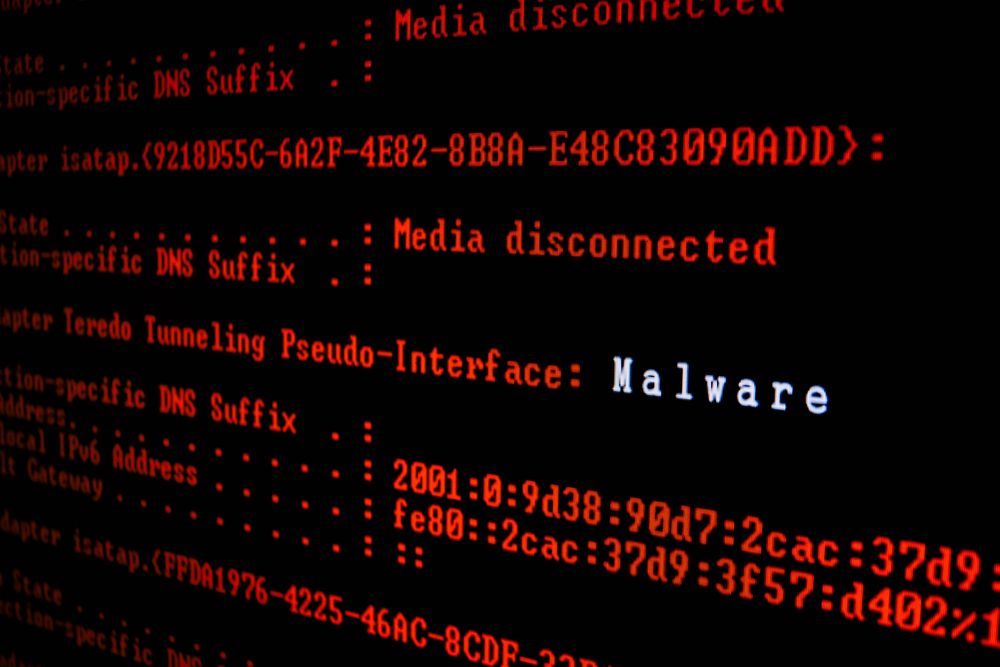Hackers target US taxpayers with NetWire and Remcos malware
Attackers are attempting to lure victims with malware-laced Word documents that purport to contain tax-related content


Security researchers have uncovered a new campaign targeting US taxpayers with malware-laced Microsoft Word documents that purport to contain tax-related content.
The scam ultimately aims to install NetWire and Remcos, two powerful remote access trojans (RATs) that enable attackers to take control of the victims' machines in order to steal sensitive information.
The scam could result in steep financial losses for taxpayers. Last year alone, the IRS identified more than $2.3 billion in tax fraud schemes.
According to a blog post by researchers at Cybereason, the new infection process is designed to evade antivirus tools and tricks targets into installing the malware via a tax-themed Word document containing a malicious macro that downloads an OpenVPN client on the targeted machine.
The malware dropper establishes a connection to the legitimate cloud service “Imgur” and downloads the NetWire or Remcos payloads by way of a technique called steganography, where the malicious code is hidden within an innocuous-looking jpeg image file.
Researchers said that the malware includes a variety of functions including the remote execution of shell commands on the infected machine, browser credential and history theft, the downloading and execution of additional malware payloads, screen captures and keylogging, as well as file and system management capabilities.
Assaf Dahan, senior director and head of threat research at Cybereason, said that social engineering via phishing emails continues to be the preferred infection method among both cyber criminals and nation-state threat actors.
Sign up today and you will receive a free copy of our Future Focus 2025 report - the leading guidance on AI, cybersecurity and other IT challenges as per 700+ senior executives
“The potential for damage is serious and the malware allows threat actors to gain full control over a victim’s machine and steal sensitive information from users or their employers. In this research, we demonstrate how the attackers are leveraging the US tax season to infect targets at will,” he said
“The use of various techniques such as steganography, storing payloads on legitimate cloud-based services, and exploiting DLL sideloading against a legitimate software makes these campaigns very difficult to detect. The sensitive information collected from the victims can be sold in the underground communities and used to carry out all manner of identity theft and financial fraud,” said Dahan.
Paul Bischoff, privacy advocate at Comparitech, told IT Pro that this attack is particularly clever because it gets its payload from an image stored on a popular and trusted site, Imgur, instead of trying to download from the hacker's server.
“The attack is easy to prevent with good digital hygiene. Never click on links or attachments in unsolicited emails. Always verify the sender before clicking a link or attachment. Be especially skeptical of MS Office documents and be sure that macros are disabled by default on your MS Office apps,” he said.
Rene Millman is a freelance writer and broadcaster who covers cybersecurity, AI, IoT, and the cloud. He also works as a contributing analyst at GigaOm and has previously worked as an analyst for Gartner covering the infrastructure market. He has made numerous television appearances to give his views and expertise on technology trends and companies that affect and shape our lives. You can follow Rene Millman on Twitter.
-
 Will autonomous robotics leap forward in 2026?
Will autonomous robotics leap forward in 2026?In-depth Connectivity and cost benefits remain barriers, despite breakthroughs in physical AI
-
 AWS and NTT Data team up to drive legacy IT modernization in Europe
AWS and NTT Data team up to drive legacy IT modernization in EuropeNews Partnership between AWS and NTT DATA aims to boost AWS European Sovereign Cloud capabilities
-
 Thousands of Microsoft Teams users are being targeted in a new phishing campaign
Thousands of Microsoft Teams users are being targeted in a new phishing campaignNews Microsoft Teams users should be on the alert, according to researchers at Check Point
-
 Microsoft warns of rising AitM phishing attacks on energy sector
Microsoft warns of rising AitM phishing attacks on energy sectorNews The campaign abused SharePoint file sharing services to deliver phishing payloads and altered inbox rules to maintain persistence
-
 Warning issued as surge in OAuth device code phishing leads to M365 account takeovers
Warning issued as surge in OAuth device code phishing leads to M365 account takeoversNews Successful attacks enable full M365 account access, opening the door to data theft, lateral movement, and persistent compromise
-
 Amazon CSO Stephen Schmidt says the company has rejected more than 1,800 fake North Korean job applicants in 18 months – but one managed to slip through the net
Amazon CSO Stephen Schmidt says the company has rejected more than 1,800 fake North Korean job applicants in 18 months – but one managed to slip through the netNews Analysis from Amazon highlights the growing scale of North Korean-backed "fake IT worker" campaigns
-
 Complacent Gen Z and Millennial workers are more likely to be duped by social engineering attacks
Complacent Gen Z and Millennial workers are more likely to be duped by social engineering attacksNews Overconfidence and a lack of security training are putting organizations at risk
-
 Hackers are abusing ConnectWise ScreenConnect, again
Hackers are abusing ConnectWise ScreenConnect, againNews A new spear phishing campaign has targeted more than 900 organizations with fake invitations from platforms like Zoom and Microsoft Teams.
-
 The Allianz Life data breach just took a huge turn for the worse
The Allianz Life data breach just took a huge turn for the worseNews Around 1.1 million Allianz Life customers are believed to have been impacted in a recent data breach, making up the vast majority of the insurer's North American customers.
-
 A new, silent social engineering attack is being used by hackers – and your security systems might not notice until it’s too late
A new, silent social engineering attack is being used by hackers – and your security systems might not notice until it’s too lateNews Security researchers have warned the 'FileFix' technique, which builds on the notorious 'ClickFix' tactic, is being used in the wild by threat actors.
